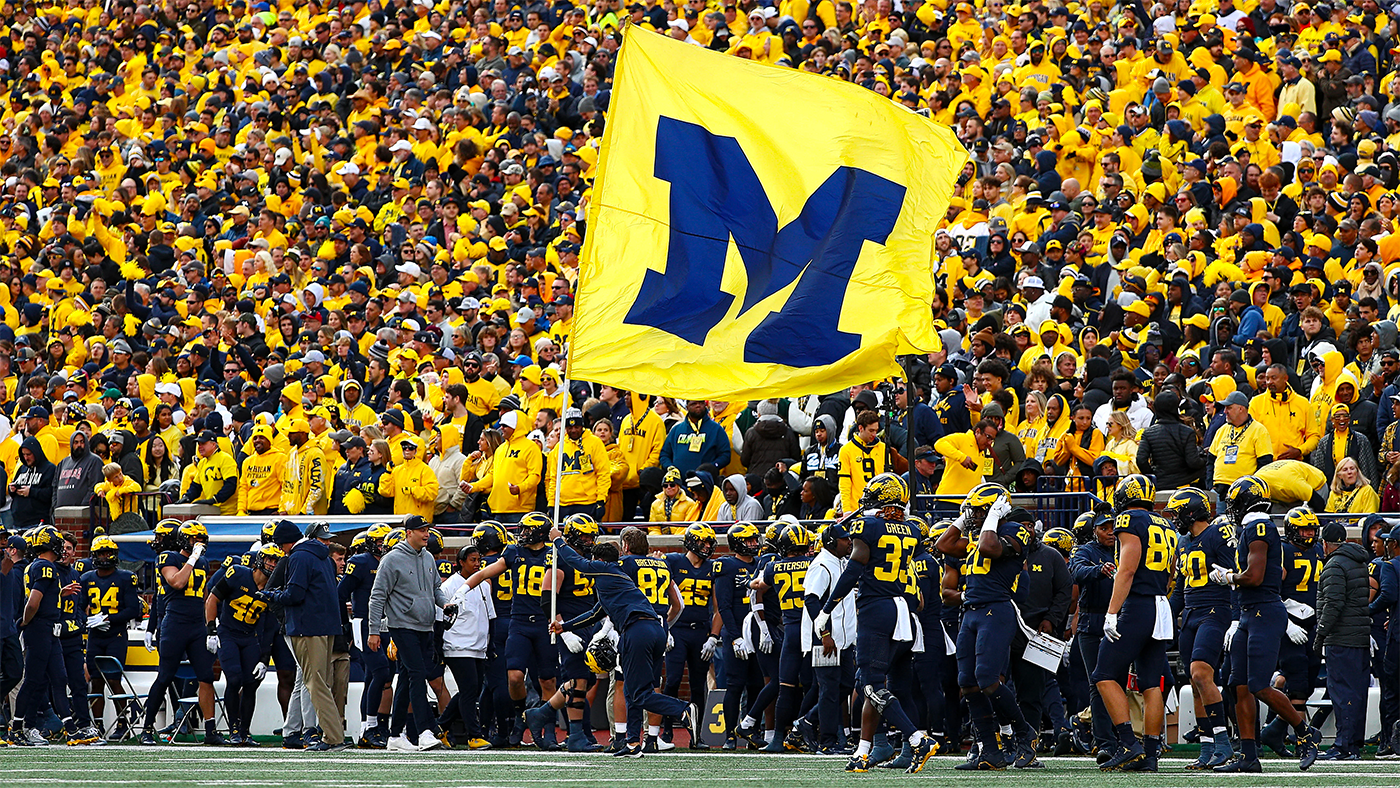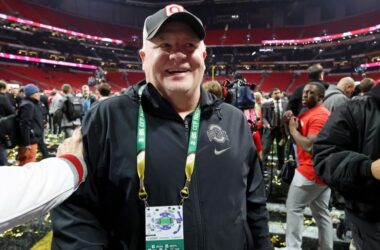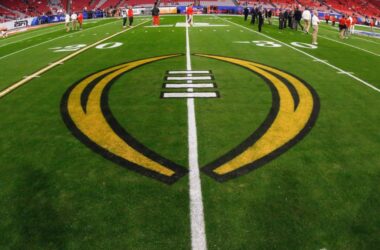
Jim Harbaugh could be held accountable for the ongoing sign-stealing scandal at Michigan, even if he had no knowledge of it. According to a recent change in an NCAA rule, Harbaugh could face consequences if evidence implicates him in the wrongdoings involving analyst Connor Stalions.
The NCAA’s coach responsibility bylaw, Bylaw 11.2.1.1, underwent a semantic change in January. Previously, the rule stated that a head coach “is presumed to be held responsible for the actions of all institutional staff members.” The language was revised to state that a head coach “shall be held responsible for their actions and the actions of all institutional staff members.”
This alteration leaves little room for ambiguity. Even if Harbaugh cannot be directly linked to Stalions’ alleged actions, the bylaw holds him responsible for the oversight of his program. Harbaugh has denied any knowledge of the sign stealing, and the NCAA is currently conducting an investigation. The next step for the association is to decide whether to issue an official notice of allegations, which would mean Michigan would be under investigation at the same time Harbaugh is already being investigated.
This sign-stealing scandal adds to an existing case in which Harbaugh is accused of misleading NCAA investigators. If the sign-stealing case is proven to be sufficiently serious, Harbaugh would face two separate cases involving major violations, which is unprecedented for a Power Five head coach of a revenue sport.
According to Jason Montgomery, a former NCAA investigator and current attorney at Husch Blackwell, the revised coach responsibility bylaw means that coaches are automatically held responsible for any violations within their program. Plausible deniability is no longer a valid defense. The argument now shifts to mitigating the penalties rather than denying guilt.
In order to lessen the penalties, Harbaugh would need to provide evidence that he had no way of knowing about the wrongdoing. However, this would not absolve him of violating the bylaw itself. The NCAA will scrutinize whether Harbaugh created a compliant environment and effectively monitored his staff, as this can potentially mitigate the penalties imposed upon him.
A previous case involving an Air Force golf and hockey coach served as the first major instance that utilized the enhanced coach responsibility provision. However, the Michigan situation is much more high-profile. While stealing signs during games or analyzing game tape for patterns is not against the rules, electronically taping opponents’ signs and advancing scouting activities is a violation.
There are two main aspects to consider in the early stages of the investigation. Firstly, it will take time for the NCAA to determine if major violations have occurred. If an official notice of allegations is issued, Michigan will have 90 days to respond, initiating a lengthy and thorough process that can span several years. Secondly, it is unclear whether the alleged sign-stealing scheme has ceased.
Connor Stalions has been suspended by Michigan and has deleted his social media accounts. The NCAA and Big Ten are unlikely to conclude their investigations until 2024. By that time, Michigan could potentially be reigning national champions. The future of the championship banner and Harbaugh’s coaching tenure is uncertain, especially as there are conflicting reports regarding contract negotiations with Michigan amidst the ongoing investigation.
The penalties that Michigan and/or Harbaugh may face if found guilty are a subject of debate. The NCAA’s recent actions, such as the conclusion of the Tennessee case, suggest that they are less inclined to impose postseason bans. Instead, the focus is on applying fines and show-cause penalties that make a coach’s employment prospects bleak. However, if Harbaugh decides to leave for the NFL, he may not be affected by a show-cause penalty.
There have been cases, like Arizona State, where negotiations with the NCAA led to a self-imposed bowl ban. However, it is notable that the NCAA intends to avoid punishing innocent parties, primarily players. The NCAA’s shift in philosophy regarding postseason bans has made the infractions process more complicated and uncertain.
Meaningful penalties for Michigan could include a substantial fine and a show-cause penalty for Harbaugh. It is also possible that “bifurcation,” a negotiated resolution within a larger case, could be utilized, as seen in previous cases involving Arizona State, Air Force, Tennessee, and Memphis. In Michigan’s case, a tentative resolution was agreed upon, involving a four-game suspension for Harbaugh to start the 2023 season. However, the NCAA Committee on Infractions rejected this negotiated suspension and decided to proceed with a full disciplinary investigation. Michigan subsequently imposed a three-game suspension to begin the season, but it remains to be seen if this action will prevent major penalties for the football program or Harbaugh.
The College Football Playoff Selection Committee is also keeping an eye on the situation as the season progresses. While it is uncertain whether the committee would penalize Michigan in the rankings, the scandal has undoubtedly raised concerns about the integrity of the game. In the initial release of the CFP Rankings, Michigan debuted at No. 3.
The Big Ten has acknowledged the Michigan case and is cooperating with the NCAA, but has not made any further comments. It is uncommon for a conference to take action in the middle of an ongoing NCAA investigation. In the past, the Big Ten applied its own penalties following the NCAA’s punishment of Penn State in the Jerry Sandusky scandal. However, the current situation at Michigan is not directly comparable, though it could potentially become one of the biggest scandals in NCAA history if the school and/or Harbaugh are found culpable. Stalions and his associates are reported to have scouted most of the Big Ten and potential CFP opponents in an elaborate scheme.
According to the Big Ten Sportsmanship Policy, the commissioner has the authority to investigate offensive actions and apply disciplinary action such as admonishment, reprimands, fines, or suspensions of no more than two games. The previous Big Ten commissioner, Kevin Warren, implemented disciplinary measures in a previous case involving Michigan State. However, there have been no unique meetings among current athletic directors to specifically discuss the Michigan situation.
The conference commissioner, Tony Petitti, is currently dealing with his third major scandal since assuming office. So far, there has been no response from the Big Ten regarding the Michigan case.




